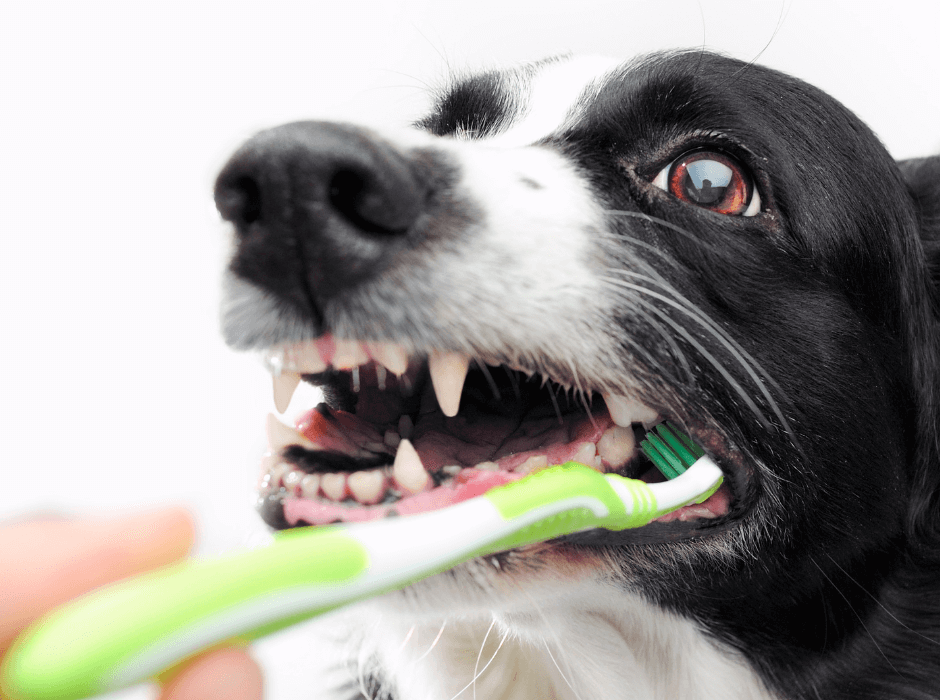February is National Pet Dental Health Month!
Second Chance Medical Director Dr. Ashely Raymond on dental & oral health
It’s that time of the year to pay extra special attention to your pet’s mouth.
Dental and oral health are very important parts of your pet’s overall health. We recommend all pets, young and old, have a yearly oral exam, typically during their annual check-up. You might think just older animals suffer from dental disease, but your veterinarian can identify problems in their mouth while your pet is still developing their permanent teeth. Yes, dogs and cats lose their baby teeth too!
The single most important thing you can do as a pet owner is to brush your pet’s teeth daily. Make sure to use a toothpaste made specifically for dogs and cats. Human toothpastes often contain an artificial sweetener called xylitol, which is toxic and potentially fatal for pets.
Did you know that 70-80% of pets will develop periodontal disease by the time they are 3 years old? That is why it is so important to start brushing while your pet is still a puppy or a kitten. The goal is to get your pet used to handling their mouth while also preventing periodontal disease from developing.
There are many causes of dental disease, but periodontal disease is the most common condition seen in dogs and cats. It starts with infection when plaque builds up on the teeth, then travels above the gum line causing disease to the tissues that support the teeth and the surrounding bone. This can cause teeth to be loose, painful, and infected.
If you notice any of the following possible signs of dental disease, we recommend scheduling a physical exam for your pet:
- bad breath
- loose, broken, or discolored teeth
- redness, inflammation, or bleeding from the gums
- difficulty chewing or dropping food
- decreased appetite or weight loss
- pain in or around the mouth
- growths within or on the mouth
At your pet’s appointment, we can discuss preventative strategies, dental diets, recommended products, and identify problems during the exam. If your veterinarian has a concern, they may recommend dental surgery, often just referred to as a “dental.” During this procedure your pet will receive a complete oral health assessment and treatment under anesthesia, which includes full-mouth x-rays, scaling and polishing of the teeth, and may include extraction of teeth, if needed. Anesthesia-free dentistry is not recommended for any pet, for both their safety and to minimize your pet’s pain and discomfort.
We look forward to caring for your pets!

